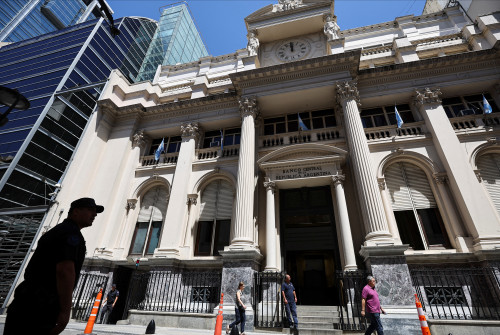By Hannah Lang
(Reuters) – Among the key findings revealed on Friday in the Federal Reserve and Federal Deposit Insurance Corp assessments of the causes of last month’s two huge U.S. bank failures, one major oversight deficiency stood out: Neither has enough bodies for the job.
Staffing shortages strained supervisory resources, particularly at the FDIC’s New York regional office, in the years leading up to the collapse of Silicon Valley Bank and Signature Bank in March, both regulators said.
The difficulty in filling roles was in sharp contrast to the swelling growth of bank deposits in the financial system, spurred in part by COVID-19-related relief and low interest rates.
The reports showed both agencies struggling with some of the same staffing challenges all U.S. employers have faced in the hot job market that has emerged from the pandemic, with around 1.7 jobs open per unemployed job seeker and frequent job switching by workers. Both the Fed and FDIC highlighted that their oversight ranks grew leaner even as the institutions they were tasked with reviewing grew larger and more complex.
In their respective reviews, the Fed and FDIC both cited poor risk management at SVB and Signature and a lack of urgency in addressing key shortcomings as the primary drivers of the twin failures.
But the regulators also found that there were gaps in their supervisory processes that they say could have been improved.
Between 2016 and 2022, as assets in the banking sector grew 37%, the Fed’s supervision headcount declined 3%, according to its report. And since 2020, an average of 40% of positions in the FDIC’s large bank supervisory staff in the New York region – responsible for supervising Signature – were vacant or filled by temporary employees, the FDIC said.
Because of those vacancies at the FDIC’s regional office in New York, certain targeted reviews of Signature were not completed in a timely manner or at all, according to the FDIC. Those delays “slowed earlier identification” and reporting of weaknesses at the bank, the report said.
At the Fed, supervisory hours at SVB declined at the same time the Santa Clara, California-based bank was experiencing rapid growth starting in 2017. While the Fed had 15 full-time employees staffed on the supervisory team for SVB, the bank received fewer supervisory resources through 2021 compared to similar banks.
“Because of the perception of a strong liquidity position, supervisors did not pursue extensive risk-management reviews and supervisory staffing remained relatively light, despite the rapid growth” of SVB, the Fed’s report said.
In the FDIC’s case, officials identified the high cost of living in New York, the impact of the pandemic and competition from other regulators and private sector firms as well as internal competition within the FDIC itself as the primary reasons for the staffing shortages.
Although the FDIC said that it had taken steps to address the shortages, including reaching a new compensation agreement in 2022 that increased employee pay, it cautioned that more work needed to be done to bolster its supervisory staff.
“Examination resource shortages, particularly in the New York region, are a mission-critical risk that will require a sustained whole-of-agency response,” the FDIC said.
(Reporting by Hannah Lang in Washington; Editing by Dan Burns, Anna Driver and Paul Simao)





